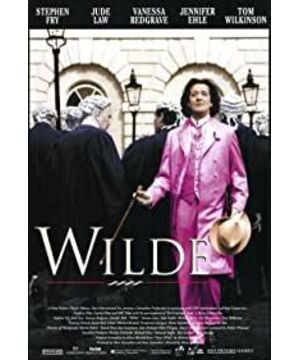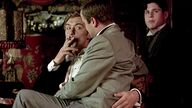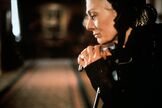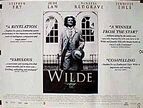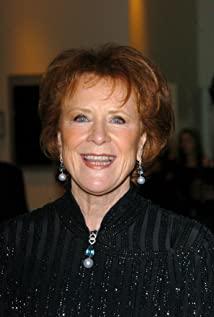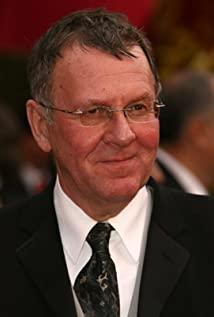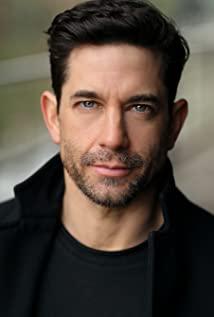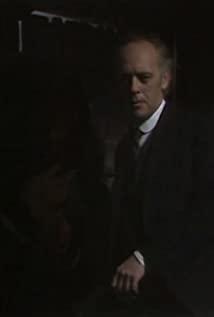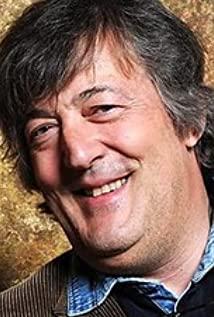The translation of the movie "Wilde" into "Heart is too restrained", some people think it is vulgar, but I think it is appropriate. He is an honest man who pursues freedom. This story is not about a love, but about a soul and its heavy body, as well as the era, society and country in which it is placed. He is tall, a little clumsy, his voice is low, and his words are euphemistic and mocking. He has intelligence and talent, he loves youth and enthusiasm. He was sentenced to two years in prison and hard labor, and eventually died in a small hotel in Paris from the severe damage to his health during his imprisonment.
At first glance I hated Jude Law's 'Bosie', even though he was handsome and, in C's words, stunning. That turbulent personality, mad and irritable, sometimes sweet and sometimes cold and arrogant, has to be reminiscent of Leslie Cheung in "Springtime", the difference is that he is even more heartless. When poor old brother Wilde was scorned by him when he was ill, I sighed with the kindness of a woman's usual thought: Old Wang really should be with the not handsome but gentle enough lover Robert Ross.
But I know that it is impossible for him to do so, the man can only be himself.
The whole movie is moving, not because of the dude's wit and bad luck, or his uncontrollable emotions. What impressed me was actually two lenses:
one. Wilde went to the street to call for a car (a horse-drawn carriage, of course), and across the street was a group of young men smoking, joking, and provoking passersby. It was clearly a group of gays. One of them, a man in a beanie, crossed the street and looked at him and smiled. His face was thin and handsome, and his eyes were unruly. Old Wang suddenly looked dazed. Man shouts: "Looking for someone?"
We have no way of knowing whether Wilde heard some inner voice call at this moment, and in fact it is impossible for a person to suddenly change his whole life because of such a casual glimpse. But this moment was full of magic, the boy's face, smile, voice, there was something indescribable. So I waited, waited, and waited until this passer-by became the male No. 3, even if it appeared again. But the family is really a passerby, and he disappeared without a trace.
Gossip to google and found that this person is Orlando Bloom, the "elf prince" of "The Lord of the Rings", who later shocked countless hearts.
Second. Wilde leaves the prison, Robert with him. He had sworn to his wife not to see Bosie again, and she had gone before him. He said to Robert, I've decided to meet Bosie.
Their reunion takes place in a square where Bosie's aristocratic father, who sent Pharaoh to prison, is dead. Two years had not changed Bosie's face, as he stood in the misty square, Wilde staring at him. It was a long shot, maybe two years.
Then, Bosie turned his head, he saw Wilde, and smiled. Such a clean, sunny smile. "Oscar!" he shouted.
I don't know how Pharaoh feels, of course, I forgive him at this moment. Who made him so beautiful and so heartless.
They broke up after two months. When Pharaoh died two years later, Bosie lived until after World War II, while Robert didn't live that long. In 1950, when everyone in this story had died, Robert's ashes were placed in Wilde's tomb.
There are many quotes from Wilde in the film, which are profound and moving, and I think the one that best summarizes his whole life and temperament comes from the following paragraph. If no translation is found, the original text is attached. The bold font is the inner monologue of Pharaoh when they meet in the square in the movie, which is very appropriate.
ERNEST. Poor life! Poor human life! Are you not even touched by
the tears that the Roman poet tells us are part of its essence.
GILBERT. Too quickly touched by them, I fear. For when one looks back upon the life that was so vivid in its emotional intensity, and filled with such fervent moments of ecstasy or of joy, it all
seems to be a dream and an illusion. What are the unreal things, but the passions that once burned one like fire? What are the incredible things, but the things that one has faithfully believed? What are the improbable things? The things that one has done
oneself. No, Ernest; life cheats us with shadows, like a puppet- master. We ask it for pleasure. It gives it to us, with bitterness and disappointment in its train. We come across some noble grief that we think will lend the purple dignity of tragedy to our days, but it passes away from us, and things less noble take its place, and on some grey windy dawn, or odorous eve of silence and of silver, we find ourselves looking with callous wonder, or dull heart of stone, at the tress of gold-flecked hair that we had once so wildly worshipped and so madly kissed.
(The Critic as Artist, by Oscar Wilde)
View more about Wilde reviews


